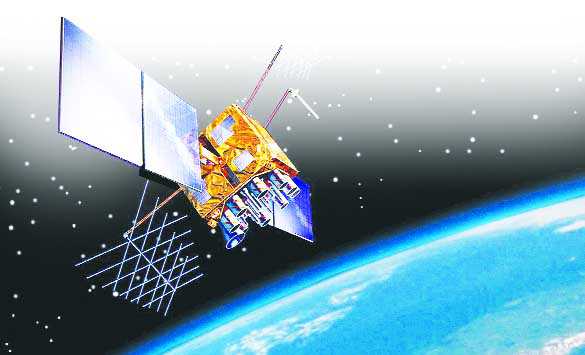US Department of Defence’s annual report warns of Beijing’s ‘destructive’ space programme
Ajay Banerjee
Tribune News Service
New Delhi, May 10
In what could ring alarm bells for the Indian security establishment, a report of the United States Department of Defence (DoD), has warned about China “destructive” space programme of stalling or destroying satellites of other countries and how its nuclear-powered submarines now make forays into the Indian Ocean.
Released on May 8, the DoD’s annual report to the US Congress on ‘Military and Security Developments Involving the People’s Republic of China 2015’ talks about a mystery ‘object’ that Beijing had launched in space on a ballistic trajectory with a peak altitude above 30,000 km.
This trajectory took it near geosynchronous orbit, where many nations maintain communications and earth-sensing satellites. The “object” re-entered Earth’s orbit 9.5 hours after launch. The US report failed to indentify it and stated: “The launch profile was not consistent with traditional space-launch vehicles, ballistic missiles or sounding rocket launches used for scientific research. It could, however, have been a test of technologies with a counterspace mission.”
“China continues to develop a variety of capabilities designed to limit or prevent the use of space-based assets by adversaries, including the development of directed-energy weapons and satellite jammers”, the US report warned. The US expressed concern “China’s continued development of destructive space technologies represented a threat to all peaceful nations”.
Presently, India has 27 satellites in space. As many as 11 are dealing with communication for a direct home TV relay, telephony and wider public applications like tele-education, tele-medicine, and disaster management. These also include indigenous military-use satellite named GSAT-7 with advanced multi-band communication facility and will keep an eye over 70 percent of the Indian Ocean.
The US report talked about how China, for the first time, had deployed submarines to the Indian Ocean, including a nuclear-powered attack submarine (SSN). “The submarines were probably conducting area familiarisation, and demonstrating an emerging capability both to protect China’s sea lines of communications and increase China’s power projection into the Indian Ocean”, the report said.
India, assumes a lead role in the Indian Ocean and China’s foray is a challenge. New Delhi has a total of only 14 submarines, including the one nuclear powered ISN Chakra, leased from Russia. It does not carry any nuclear warheads. The report said: “China has 69 subs”.
China continues to produce the JIN SSBN (Type 094) with associated JL-2 ( Julang-2) submarine-launched ballistic missile (SLBM), with a range of 7,400 km. “China will likely conduct its first nuclear deterrence patrol sometime in 2015”, it said.
In Naval parlance ‘Deterrence patrols’ means a sub at sea is ready to fire within seconds of a nuclear strike by the adversary. A nuclear submarine is militarily considered to be one of the most potent second-strike platforms for retaliation to a nuclear strike.
On nuclear weapons, the US report said China’s new generation of mobile missiles with maneuverable reentry vehicles ensure China’s strategic deterrent. “India’s nuclear force is an additional driver behind China’s nuclear force modernisation,” the report said.
Space assets under threat
Satellite jammers
Using a sophisticated land-based system, satellite communications of potential enemies can be blocked using radio frequencies. The US has the technology and is now developing one to even locate such jammers installed by other countries.
Counter-space measures
These are used to deny, degrade, disrupt, and, if necessary, destroy enemy space capabilities. Space Interdiction provides instantaneous monitoring and accurate identification of any space communication to or from the ground from a space-based platform. This can be blended with anti-satellite (ASAT) weapons and target space capabilities of others.



